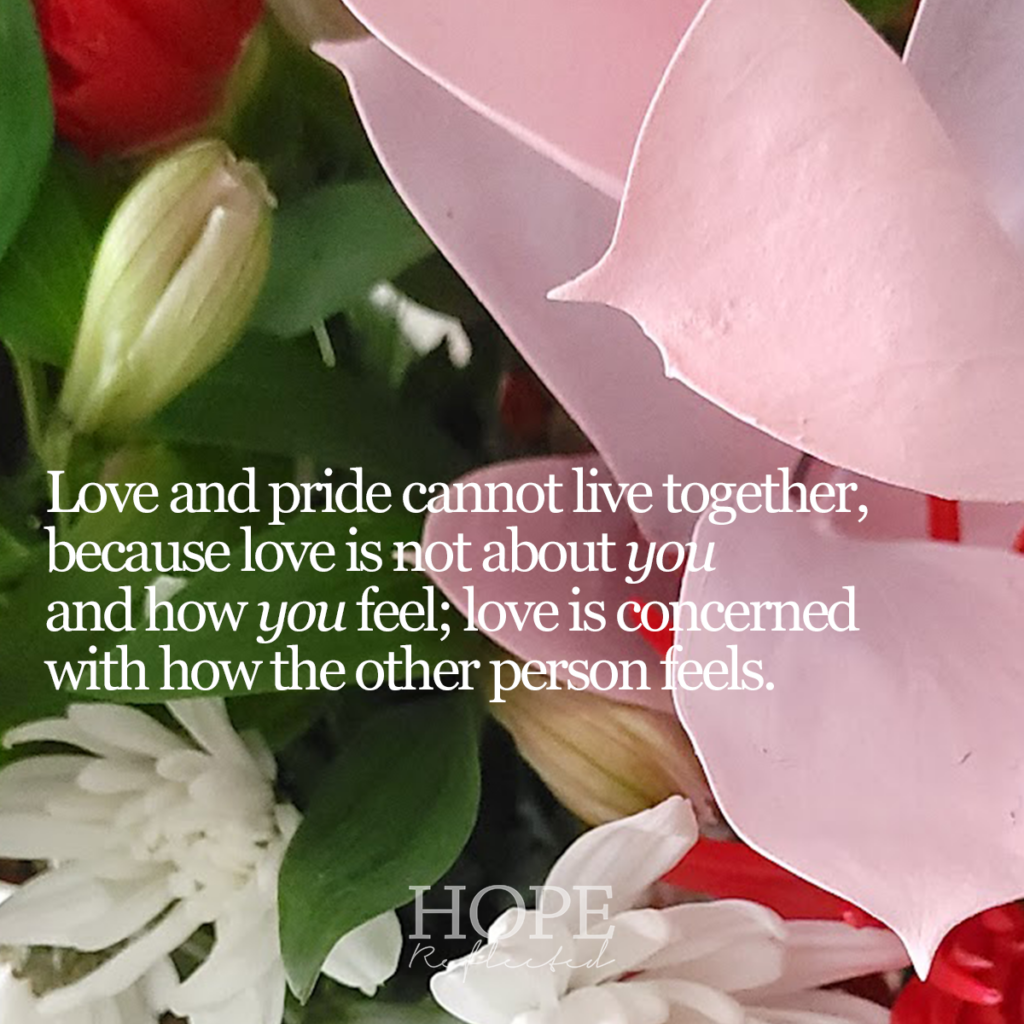Love is a verb, part 2
Written by H, Posted in Christian Living, Published Work

This past week I read in 1 John 3:22-23, “And whatsoever we ask, we receive of him, because we keep his commandments, and do those things that are pleasing in his sight. And this is his commandment, that we should believe on the name of his Son Jesus Christ, and love one another, as he gave us commandment.”
Love is an action word
As I wrote in part 1 of Love is a verb, love is an action word; it is very much something that we do. Studying the characteristics of “charity” (love) described in 1 Corinthians 13, it’s important to note that love is a commandment from God.
Love is not rude

“Charity… Doth not behave itself unseemly,” (1 Corinthians 13:5). This portion is translated from the Greek ouk aschemonei and literally means to behave in an unbecoming manner. In other words, love doesn’t act in a manner that is unbecoming or contrary to itself. Love is not rude, and love doesn’t degrade or humiliate others.
Matthew Henry wrote of this characteristic of love: “It does nothing out of place or time; but behaves towards all men as becomes their rank and ours, with reverence and respect to superiors, with kindness and condescension to inferiors, with courtesy and good-will towards all men. It is not for breaking order, confounding ranks bringing all men on a level; but for keeping up the distinction God has made between men, and acting decently in its own station, and minding its own business, without taking upon it to mend, or censure, or despise, the conduct of others. Charity will do nothing that misbecomes it.”
Love is not selfish

“Charity… seeketh not her own,” (1 Corinthians 13:5). One of the marks of love is that it doesn’t demand its own way or seek its own benefit. Love is not selfish, as Matthew Henry suggested love is an utter enemy to selfishness. Just as love does not dishonour, love also seeks to honour others above itself. This recalls the second commandment, “Thou shalt love thy neighbour as thyself.” (Matthew 22:39).
Love requires that we uproot that rotten plant pride, and instead of putting ourselves at the center, we look out for others. The J-O-Y principle: Jesus first, Others second, Yourself third.
Love is not easily angered

“Charity… is not easily provoked,” (1 Corinthians 13:5). From the Greek ou paroxynetai, meaning “is not exasperated”. Soft rather than sharp, love keeps a quick temper at bay. Two fires can’t burn together, so where love is aflame, a fiery temper won’t burn.
Love keeps no record of wrongs

“Charity… thinketh no evil;” (1 Corinthians 13:5). Love keeps no record of being wrong. Just as love is an enemy to selfishness, love is also an enemy of dishonesty, of jealousy, and of revenge. To show love, we must practice honesty instead of dishonesty, admiration rather than jealousy, and forgiveness rather than revenge. Real love, it turns out, is not always easy to practice.
As C.S. Lewis wrote, “…love as distinct from ‘being in love’ is not merely a feeling. It is a deep unity, maintained by the will, and deliberately strengthened by habit, reinforced by the grace which both partners ask, and receive, from God.”










![False friends or counterfeit kindness; whatever you want to call it, the world is filled with people who will say one thing to your face and then another behind your back; people who will woo you in order to get something from you.
It’s sad, but it’s true.
The Bible provides us with examples from Joab to Judas, and yet, we’re surprised when we find ourselves deceived and hurt by someone else.
So what are some of the hallmarks of a true friend?
You can read more about this on hopereflected.com [Link in profile]
.
.
.
#friends #friendship #kindness #counterfeitkindness #hurt #proverbs #truefriends #hopereflected #blog #blogpost](https://www.hopereflected.com/wp-content/plugins/instagram-feed/img/placeholder.png)